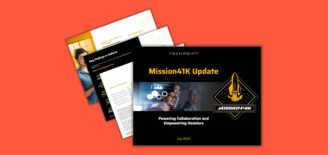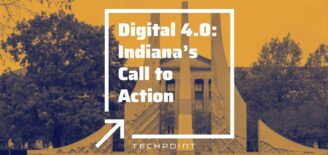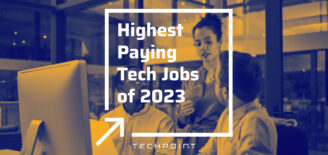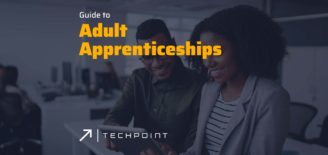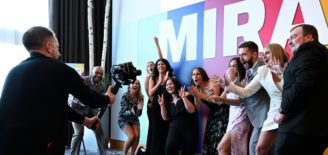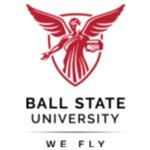Ball State University’s Faculty Externship Program elevates soft skills and dials in real-world application
Can a philosophy major land a job in a fast growing technical field like software development? What about an English or art major, business, sciences or humanities student? Is there a place in tech for people who don’t hold computer science, engineering or other technical degrees?
Jim McAtee, assistant vice president and executive director for career and professional development at Ball State University knows it’s possible, and through the Faculty Externship Program he started with Cardinal Connect Program Director Jill Cooper at the university’s career center, BSU expects its graduates to continue being top competitors for jobs in all of Indiana’s fastest growing industries, including technology.
With transferable skills, job market is wide open
It really wasn’t all that long ago—less than 40 years—that college students studied a field, earned a degree in that field and then went on to land a job in that field where they stayed for most of their professional lives. Of course, the pipelines from college to career are dramatically different today, and hiring managers in industries like technology (which grew by 2.3 million more jobs last year) are eager to make up for shortfalls in available skilled labor, regardless of the degree or field of study. In fact, up to 28% of software developers working in the industry today have no degree at all or they have a business-related degree or a degree in a humanities, social science, or fine arts field of study. (2020 StackOverflow Developer Survey.)
What this means for college students today is that the job market is wide open for people with transferable skills such as problem-solving, teamwork abilities, a strong work ethic, written and verbal communication, digital technology skills and leadership qualities. According to a January 2020 survey report from the National Association of Colleges and Employers (NACE), beyond a relevant major for the position and a strong GPA, 91% of employer respondents are seeking signs of a candidate’s problem-solving skills, and 86 percent want proof of a candidate’s ability to work as part of a team.
“Employers tell us that as long as new hires have these NACE workplace competencies, they can train them and teach them the specific technical skills needed to do the job,” Jim said. This isn’t necessarily a new concept, Ball State professors have been teaching students about the importance of “soft skills” beyond coursework for a long time. What is new is, through the Faculty Externship Program, professors are getting immersed in an industry experience so that they can see these soft skills at play in the workplace and then map them to specific coursework and academic outcomes.
The value is multiplied with the campus community
Externships are traditionally 40 hours on site over two to three weeks during the summer months. In 2020, Externships were conducted in a variety of ways due to the pandemic—some were online, some were hybrid, and some were still conducted on site. Regardless of the format, Ball State faculty were still able to take virtual tours, attend small and large group meetings and touch on every department at their host companies, in addition to deep dives into their own areas of expertise.
“What happens next is where the value of the Faculty Externship Program is multiplied,” said Jill. “Professors come back to campus, write reflection papers, give presentations to their colleagues from all different colleges and departments, and they share their plans for enhancing the curriculum based on what they have learned being out in the industry.”
For example, professor Dan Royer in the Miller College of Business has envisioned a major new project for his accounting students following his Externship experience this summer with BlackInk IT, an Indianapolis-based IT managed services provider. For his Accounting 202 course, Professor Royer will assign students a project that includes interviewing a business professional.
“One stipulation is that the interview must be completed via Webex, Zoom, Teams, Skype, Hangouts, or some other virtual method,” said Professor Royer. “The students will write … a critically reflective memo focused on the experience of interacting remotely. They will react to the interview, the process, and what they found most surprising as a result. This assignment will hone their skills & competencies within the areas of professionalism, communication and digital technology.”
Molly Ferguson, a member of the English faculty in the College of Sciences & Humanities, did her Externship at EduSource, a training company that also builds custom software, located near the IUPUI campus in downtown Indianapolis. “The thing I was most impressed with at EduSource is how they build in metacognition—thinking about your own process—to help meet their daily and weekly goals laid out on the Kanban board,” Molly said. “Apprentices learn to identify ‘root causes’ for why a project may not be proceeding as quickly as expected, and then categorize those causes into patterns. In one case, an apprentice demonstrated an amazing sense of humility in recognizing what he didn’t understand before, and how he knows what he knows now. I could actually see the self-reflection happening in real time!”
Associate Professor Craig Webster from the Miller College of Business did his Externship with Genesys, a customer experience and call center software company, located on the city’s Northwest side. Professor Webster said he’s “incorporated a self-evaluation into my classes this year so that students can reflect upon what they learned during the semester; this will be a writing assignment in business style to ensure students get to improve their business communication capabilities and will also include critical feedback.”
Externships lead to improvements and opportunities
For BSU faculty, the Externship Program is an organized way to back up the things they’re teaching in courses and to better help students understand the application to the industry as well as the assignment itself. For example, the answer to “why does an accounting student need to be able to interview an industry professional over Zoom” is easy to grasp when coupled with the goal of learning NACE competencies that the student will be exposed to throughout the process.
“We’ve seen specific curriculum improvements, new activities, and new experiments and opportunities for research because of the experiences that faculty have had during their Externships,” Jill said. “We’ve also seen new partnerships created for class speakers, site visits, guest lectures, colloquium series and more. These relationships built through the Externship Program have led to student internships being created and even jobs secured after graduation.”
It’s important to note that the Faculty Externship Program didn’t introduce NACE competencies to BSU faculty; they were already teaching them. “What I would say we’ve helped with is knowing the latest ways soft skills are applied in the workplace,” Jim said. “It’s been a journey to raise awareness of these skills and how and why they matter today, as well as to elevate them to a level of importance that’s equal to the coursework.”
“There have been so many beautiful outcomes over the past six summers of this program that we’d really like to get more employers, especially tech employers involved,” Jim said.
For more information about the Ball State University Faculty Externship Program or to sign up to be a summer 2021 host company, please contact Jill Cooper at jlcooper2@bsu.edu in the university’s Career Center.





